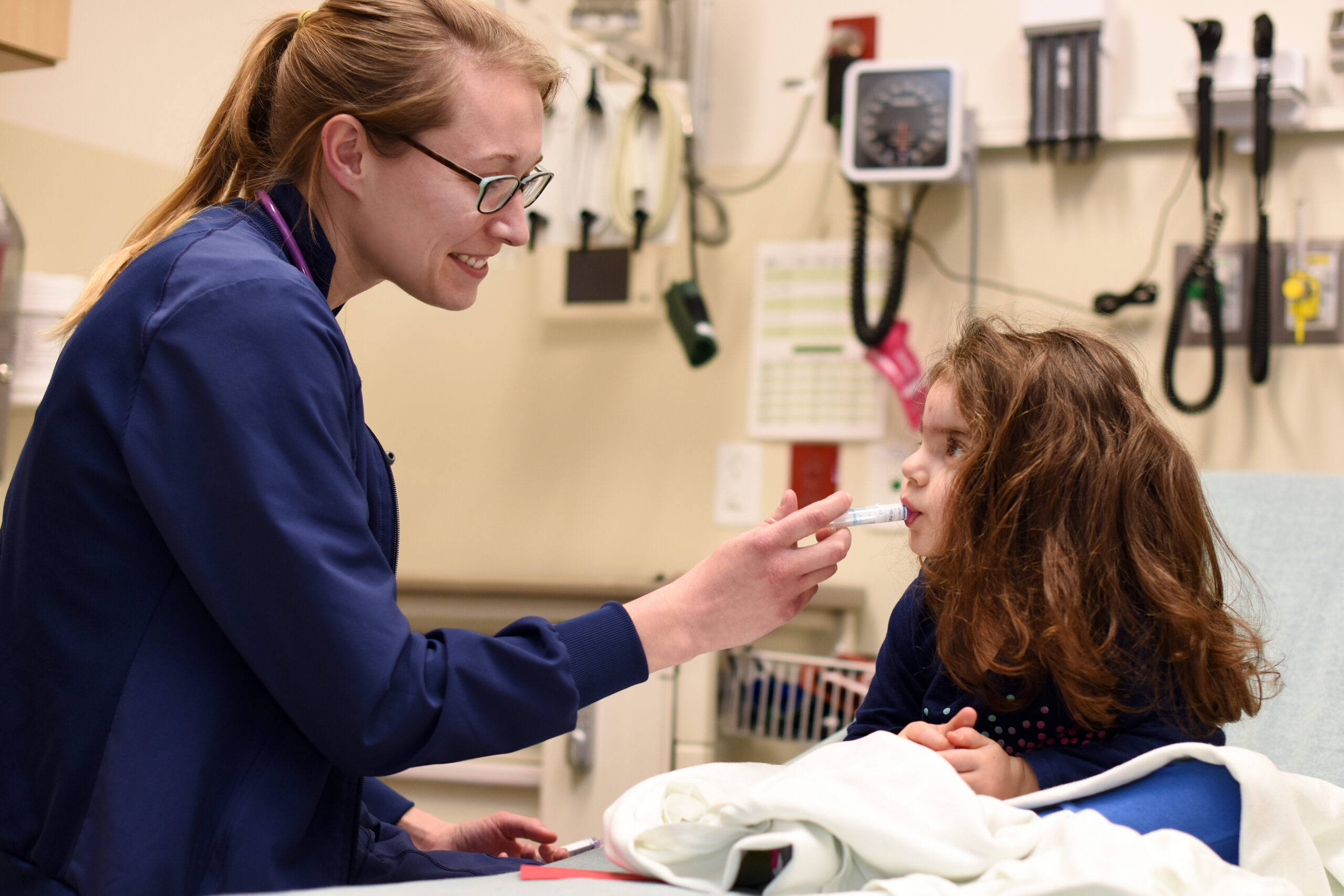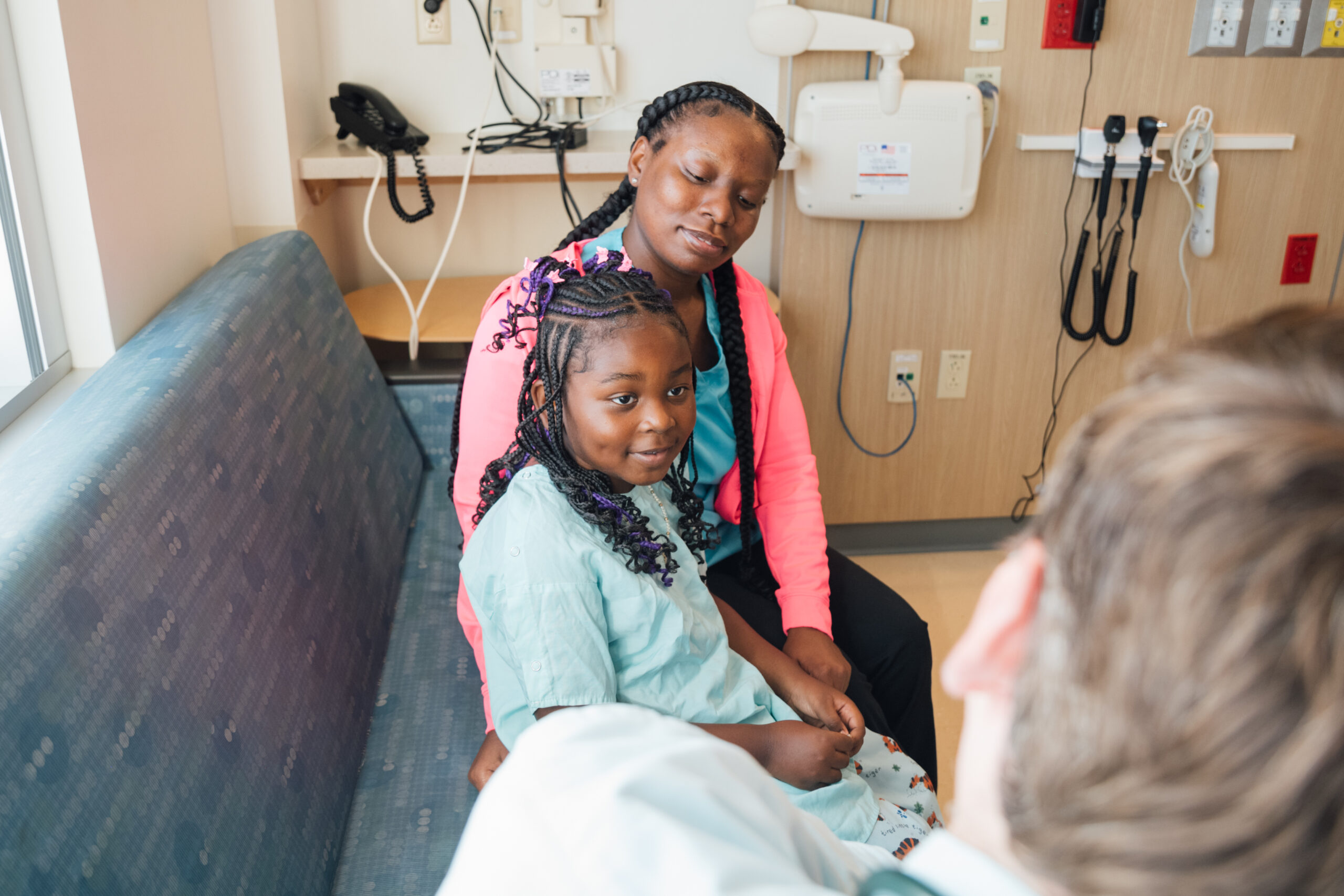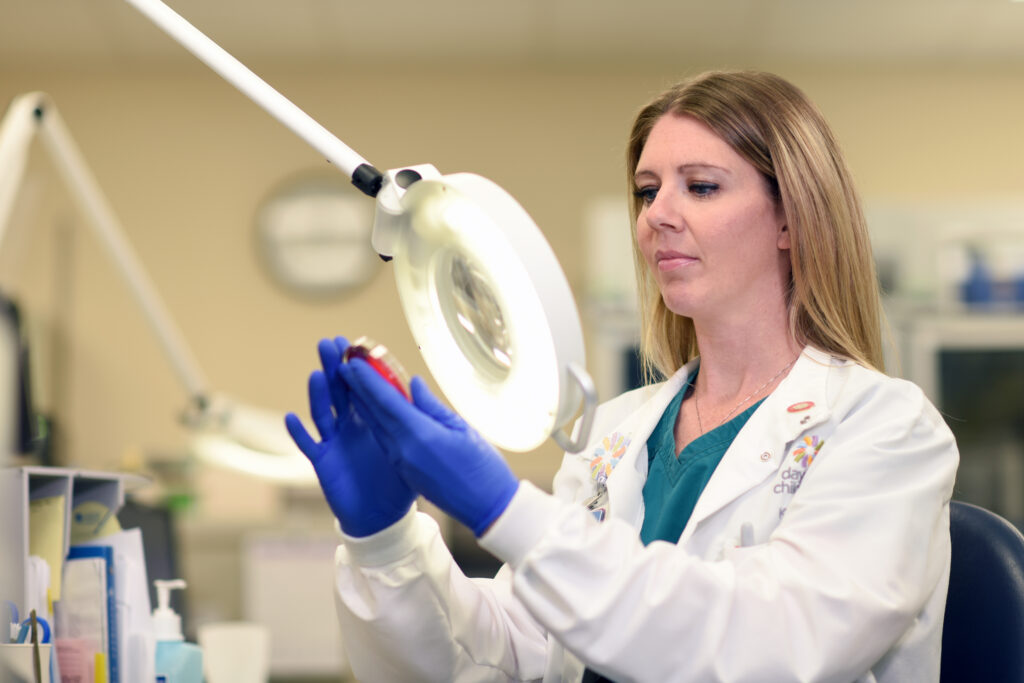pediatric infectious disease


what is pediatric infectious disease?
Our pediatric infectious disease team provides expert care for serious or persistent infections, with advanced testing and compassionate support for your family.
Pediatric infectious disease focuses on diagnosing and treating serious, uncommon, or difficult-to-treat infections in infants, children, and teens. These infections may be caused by bacteria, viruses, fungi, or parasites, and can sometimes require advanced testing or long-term treatment. While many infections are mild and clear up on their own, some are persistent, resistant to antibiotics, or linked to a weakened immune system. That’s when a pediatric infectious disease specialist can help uncover the cause and guide the right care.
our approach to treating infectious disease
Our infectious disease specialists care for children with a wide range of conditions—from infections that don’t respond to routine treatment to rare or complex illnesses. We collaborate with pediatric specialists across Dayton Children’s to ensure each child receives the full support they need. This includes coordination with our advanced lab for accurate testing, access to immunology and travel medicine experts, and long-term management for conditions like HIV or chronic infections. Whether your child needs follow-up care after a hospital stay or ongoing treatment for a serious infection, we’re here to help every step of the way.

our infectious disease specialists
Our pediatric infectious disease providers specialize in diagnosing and managing complex infections in children of all ages. With advanced training and a problem-solving mindset, they’re often called in when an illness is difficult to diagnose or doesn’t respond to standard treatment. They collaborate closely with other specialists across the hospital to ensure each child receives the most effective care.
- J. Michael Klatte, MD — Division Chief, Infectious Disease
- Jon Woltmann, MD — Infectious Disease
conditions we treat
Our infectious disease specialists provide diagnosis and treatment for children with all types of infections or potential infections. These include:
- Acquired immunodeficiency syndrome (AIDS)
- Congenital infections
- Cytomegalovirus (CMV)
- Febrile illnesses
- Fetal conditions
- Hospital-associated infections
- Human immunodeficiency virus (HIV)
- Immunodeficiency disorders
- Infections (acute, chronic and recurring)
- Meningitis
- Opportunistic infections
- Rashes
- Respiratory syncytial virus (RSV)
infectious disease programs and clinics
Dayton Children’s provides testing and ongoing care for infants, children and adolescents with human immunodeficiency virus (HIV). Although there is not a cure for HIV, the disease is treatable. In fact early and consistent medical care can help people with HIV resist related infections, stay healthy and enjoy a good quality of life.
The infectious disease team provides the following services for children with HIV and their families:
- Testing to confirm a diagnosis of HIV
- Ongoing care to help prevent secondary infections and other illnesses
- Referrals to other specialists at Dayton Children’s who can provide support, such as psychologists, nutritionists and social workers.
- Referrals to local organizations that provide additional support, such as the Equitas Health in Dayton (formerly known as the AIDS Resource Center).
Learn more about caring for a child with HIV.
emergency HIV treatment
Post-exposure prophylaxis, or PEP is another name for emergency HIV treatment. It is a short course of antiretroviral drugs that stops exposure to HIV from becoming a life-long infection. PEP is not a cure for HIV, it is a form of HIV prevention.
It is important for your overall future health to complete the PEP medication and to attend all follow-up visits. Your care team will routinely screen for side effects of the medication, monitor lab work to make sure you’re staying healthy, and screen for other health care and mental health care needs.
Remember that assault is never your fault, and it’s normal to feel anxious about being infected with HIV. Don’t let being worried stop you from getting an HIV test and being treated. In addition to treatment, getting the right support is important. Your care team can help address any concerns or fears you may have before, during and after taking PEP.
For more information and resources:
Rape Victim Advocates – 888-293-2080
RAINN Hotline – 800-656-HOPE (4673)
news and blogs
Stay up-to-date with the latest insights from Dayton Children’s Hospital. We’re always working to share helpful, real-world content for families navigating infectious disease care.
patient stories
Being diagnosed with an infectious disease can be overwhelming, but you’re not alone. Hearing from other families and having a trusted care team by your side can make all the difference. Our patient stories share real experiences from kids and parents who have faced these challenges. See how they navigated care, found answers and got back to feeling like themselves again, thanks to Dayton Children’s infectious disease care.
for your visit
Before making an appointment with a Dayton Children’s infectious disease specialist, we ask that you obtain a referral from your child’s physician. The central scheduling department will contact you once we receive the referral. For more information, please call 937-641-3329.
If your child is a new patient, you can expect the first appointment to take about 45 minutes. Please bring:
- Information about your child’s health history, such as your child’s immunization record and any medical records you may have that relate to your child’s condition.
- Lab results (unless lab tests were performed at Dayton Children’s)
- Immunization record
Follow-up appointments usually take about 30 minutes.
more resources for your visit
Get checklists, resources, and helpful tips for before, during, and after your visit to Dayton Children’s—so you know exactly what to expect.
resources – infectious disease
Other organizations offer helpful educational materials for patients and families dealing with infectious disease issues. Our specialists encourage families to find support through the following websites and organizations.
hours & locations – infectious disease
Our team is here to support your child’s health at multiple convenient locations.
need help managing a serious infection?
From unexplained symptoms to long-term infection management, our infectious disease specialists are here to help. Talk to your primary care provider today for a referral to the infectious diseases clinic.
